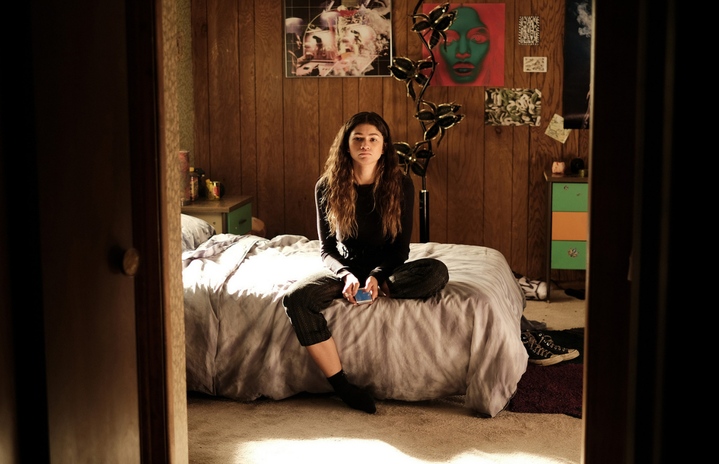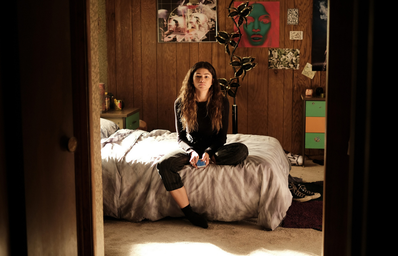If you weren’t living under a rock or with the Amish the past month, you were probably watching HBO Max’s hit series, Euphoria. The show centers around a group of high school friends and their vices. Euphoria‘s mission statement was to help the audience to understand people as they see themselves, in order to develop more compassion for individuals going through hard times. Sam Levinson was both the director and writer for Euphoria, and many claim that this caused the show to not reach it’s full potential.
Euphoria was a masterpiece in many rights. The cinematography, lighting, make-up, costuming, and acting was show-stopping. You’d often forget that you’re watching what was sometimes a Riverdale-equivalent TV show. However, the case still stands that Sam Levinson’s writing of the show left much to be desired. By the end of season two, audiences were confused and disappointed.
The problem that occurred was that Levinson was the sole writer of the show. And at first glance, that might not seem so consequential. Aspects of the show were modeled after his own experiences during the phase of his life where he suffered from a drug addiction, so at least viewers can have confidence in knowing that what they’re seeing is a somewhat accurate portrayal of what drug addiction is like.
However, Levinson was often underprepared as a writer, or unprofessional by industry standards. Many outlets have revealed that he would often change the script completely the day of shooting, ask for in-depth feedback from the actors as to what they would like to see in the scene (as opposed to taking initiative of his creative project), and there are rumors that Levinson would often come to set without a shot-list (one of the most integral organizational aspects of a film production. The consequences of these choices was a plot that felt completely divided, questions that were never answered, and an anticlimactic ending to the second season.
So what could have saved Euphoria from this fate? A writers room.
Writers rooms consist of a group of screenwriters that develop the plot of a TV show. In the writing room, writers “sit and break the story. In a new show, that means creating the bible, outlining the season, breaking each episode, and then writing drafts. Those drafts then get punched up by the room and sent to the network for notes. Once those notes come back, they get edited. When everyone approves a draft, that draft goes to the production team and director.” In these rooms, each writer has their own expertise that is beneficial in creating a well rounded narrative. When shooting, the team is also often on set to make sure the tone and intent of the show or episode is upheld.
If Euphoria had a writer’s room instead of one solo screenwriter, the show might have ended up with a more substantial plot and more complex characters that made choices that aligned with their actions in previous episodes or seasons. Questions would have probably been answered and the ending of the show probably would have been more satisfying. But that is just speculation.
Reference
Hellerman, J. (2021, February 24). What’s a writers’ room and how do they work? No Film School. Retrieved March 5, 2022, from https://nofilmschool.com/writers-room-definition


